Pets can lose large amounts of blood due to a disease, surgery, or trauma that require a blood transfusion. Luckily, healthy dogs and cats can become blood donors just like people! The demand for donations is constantly growing and healthy pets from our community can help provide this life-saving resource.
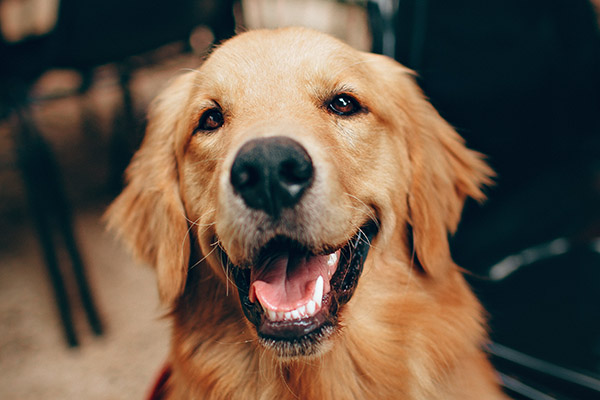
Dogs may be eligible if they meet the following requirements:
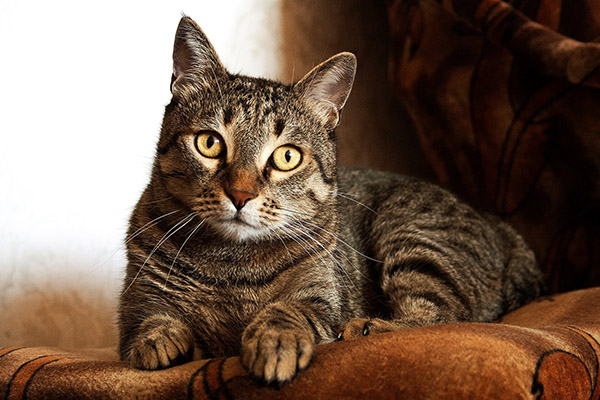
Cats may be eligible if they meet the following requirements:
Recipients of these blood donations receive life saving care! Due to your dog or cat’s generous gift, each donation has the potential to save up to three different patients. Your pet can help multiple others have a second chance at life!
In appreciation for your participation in the program, we provide a wide array of benefits including:
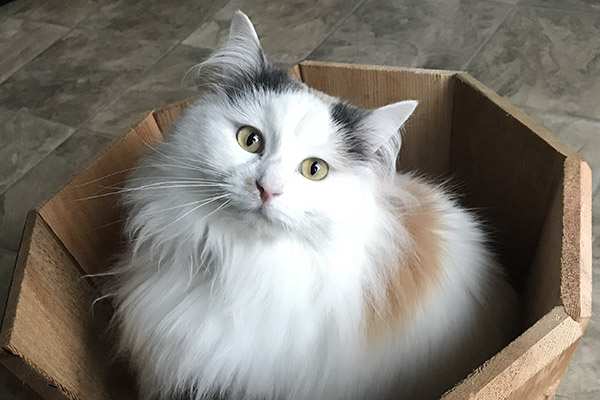
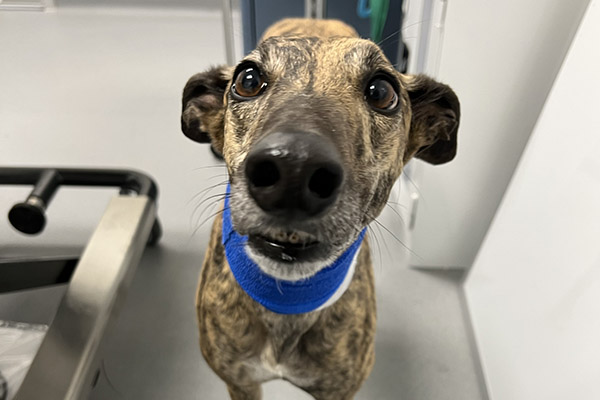
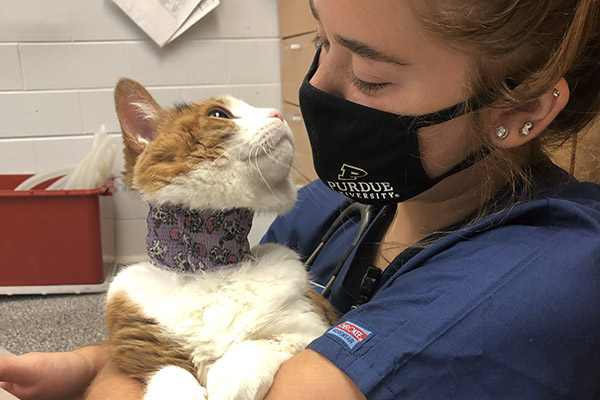
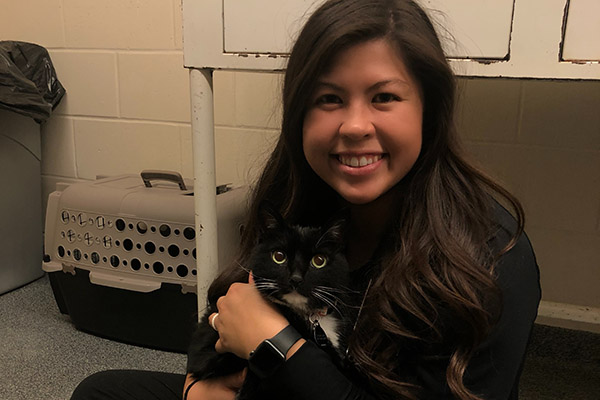
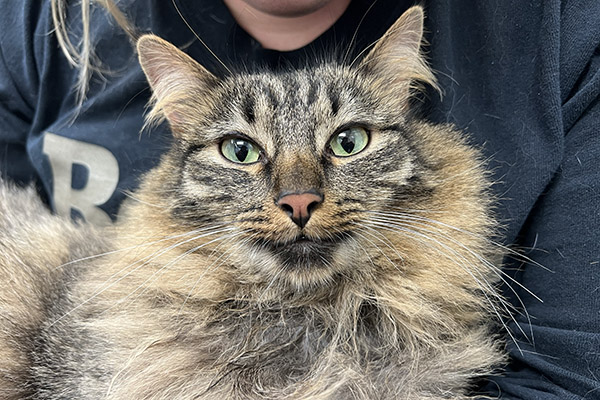
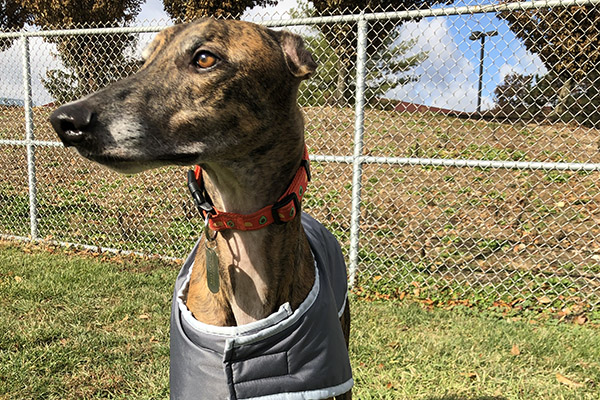
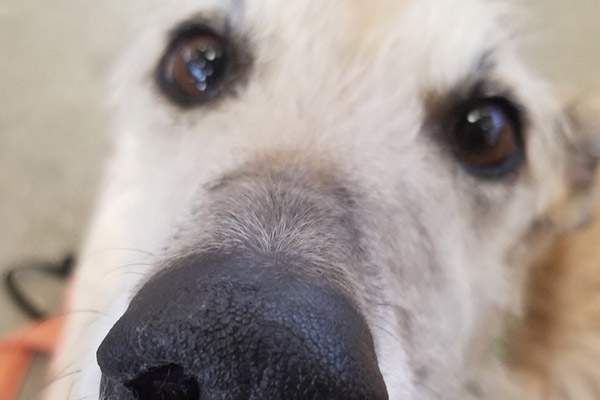
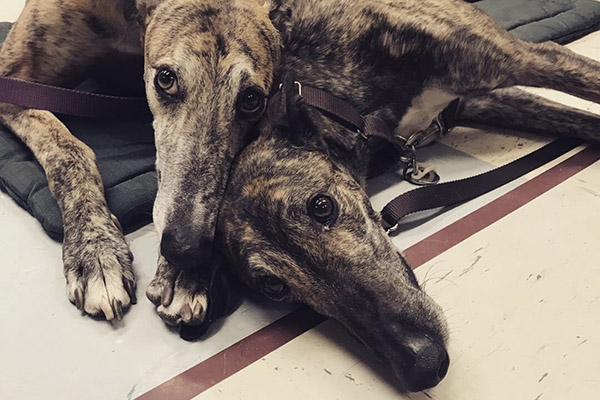
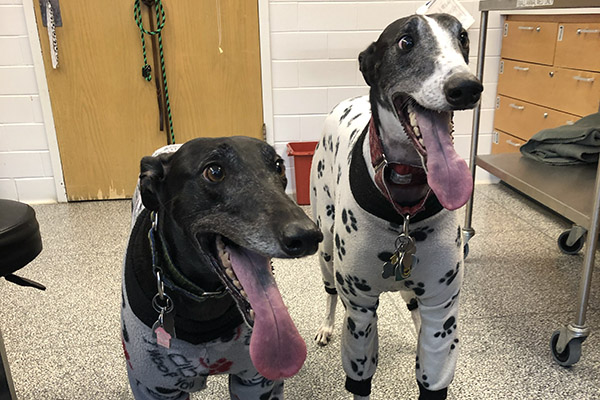
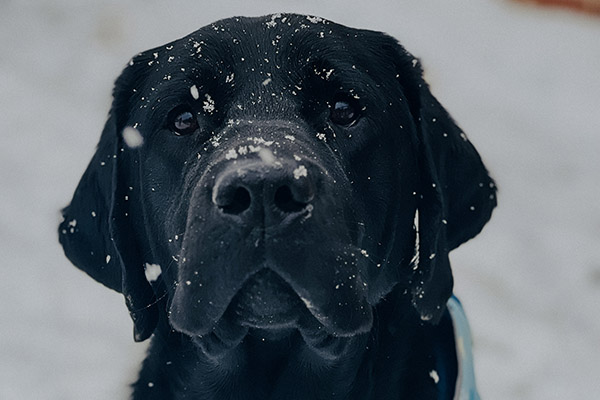
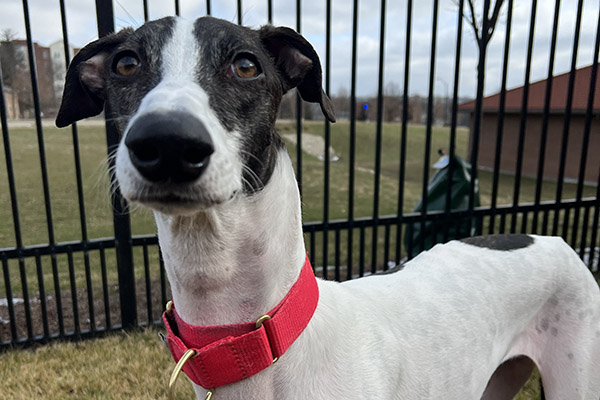
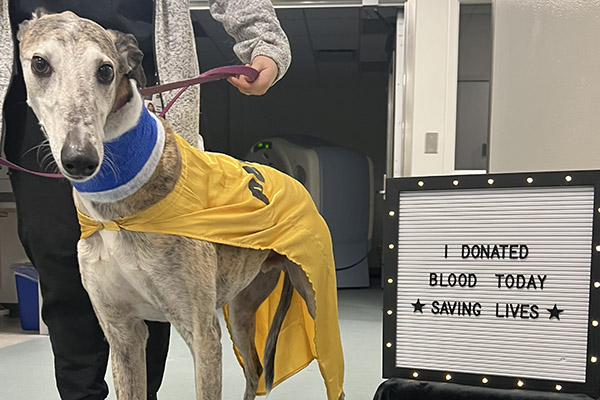
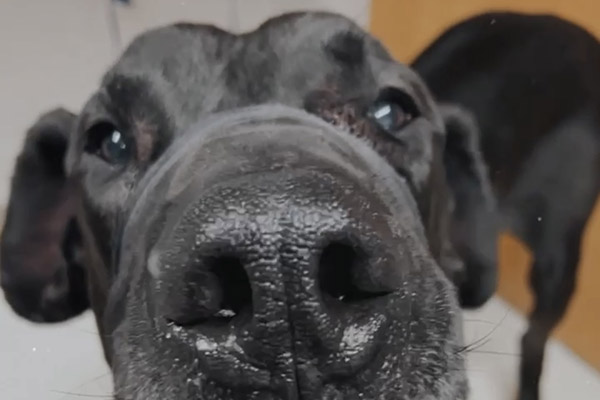
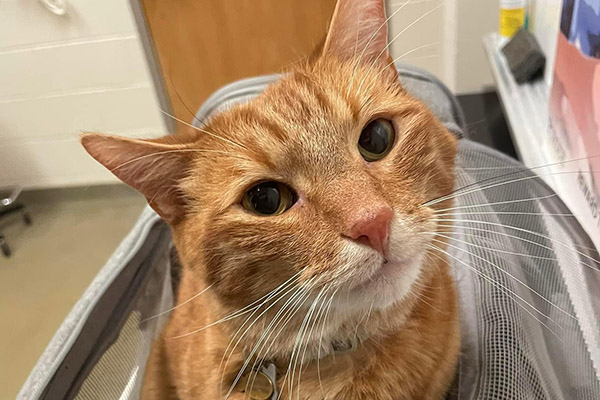
Pets can lose large amounts of blood due to a disease, surgery, or trauma and require a blood transfusion. The demand for donations is constantly growing and healthy pets from our community can help provide this life-saving resource. Each one of our donors makes a huge difference with each unit they donate and can help save the lives of up to 3 different patients per donation!
Yes!
Cats have three different blood types: A, B, and AB. The majority of the cat population are type A. Type B can be found in about 5% of the population. There is no blood type in cats that is considered to be “universal.” We currently accept both Type A and Type B cats into the blood donor program.
Dogs have a large array of blood types! Dog blood types are determined based on the presence or absence of antigens called Dog Erythrocyte Antigens or DEA. Typically, four groups are considered when screening for a blood donor. These groups are DEA 1, 4, 5, and 7. DEA 1 is the main blood antigen used for classification in dogs. A dog is classified as DEA 1 positive or negative. Almost all dogs (99.9%) are positive for DEA 4. For this reason, during the screening we look for dogs that are DEA 4 positive and negative for all other antigens as this is considered a universal blood type. However, we also accept donors that are DEA 4 positive and DEA 1 positive while still being negative for all other antigens as they can be useful in donating to other DEA 1 positive dogs.
Screenings are typically done in 2 appointments.
During the first appointment, our team will get to meet your pet and draw a blood sample to test for the pet’s blood type as well as screen for infectious diseases that could disqualify them as potential blood donors. This appointment typically takes less than an hour depending on our team’s availability that day. If your pet passes this initial screening, meaning they are negative for all infectious diseases and are a blood type that is needed for our program, they will move on to our second round of screening during the second appointment.
During the second appointment we will run in-house diagnostic tests to make sure that your pet is overall in great health and has appropriate clotting times. This appointment can take up to 1-2 hours depending on our team’s availability that day. At this appointment, we will also walk through the blood donor contract with you and officially add your pet into the program if they pass all of their health screening.
It is very important that our donors are vaccinated if they are going to donate blood as the blood that they give is used to treat other unhealthy pets.
We recommend that our dogs are up to date on their core vaccinations including:
We recommend that our cats are up to date on their core vaccinations including:
All donors should be taking monthly flea/tick/heartworm preventatives. In general, we prefer that donors not be on chronic medications other than thyroid supplementation (e.g. chronic NSAIDs for arthritis, for example, would not be allowed). Supplements such as fish oils, glucosamine/chondroitin, and multivitamins are fine. If your pet requires short-term medications (e.g. antibiotics for a urinary tract infection), then we ask you inform the program that your pet is on medication so we can delay the next scheduled donation for when the drug is out of their system. Occasionally, some pets require mild sedatives to permit blood donation, which we will review on a case-by-case basis.
No. During the screening process, all fees are covered by the donor program.
Purdue has a dedicated and specialized team of veterinary nurses to make the donation process run smoothly. With the use of positive reinforcement, the pet is placed on their side and a small spot on their neck is shaved and cleaned for the donation. Donations only take about 10 minutes to complete but include proper set up time beforehand. The donation is followed by lots of cuddles and treats!
Dog blood donors are minimally restrained and encouraged with positive reinforcement like pets and treats! Our team works over the course of a few months to help train your dog to lay still on their side for longer increments of time prior to their first blood donation. The majority of canine blood donors at Purdue do not require sedation at the time of donation.
Cat blood donors do require sedation or light anesthesia. The veterinary nurses at Purdue are trained to closely monitor your pet while under sedation. The sedation lasts approximately 15–25 minutes.
We prefer that you are not present, since many dogs behave much better when the owner is not around, making the process easier and faster.
Currently, the blood donor program at Purdue is only accepting dogs that weigh over 50 pounds. This requirement ensures that each pet can donate a full unit of 450mLs safely as it is a large volume. If our program expands to using smaller units in the future, we will look into accepting smaller dogs into the program!
Dogs in the program are required to donate a minimum of 4 times a year in order to stay in the program. Twice a year, your pet will receive a donation schedule that includes what dates to bring them in for a donation over the course of the next 6 months. Most dogs come in for a donation every 2 months. Each regularly scheduled donation will take place on a Monday morning and your pet can be dropped off in the morning and picked up after their donation anytime before 5pm that day. If your pet is a ‘universal blood type’ and has a good temperament, they may go onto an on-call schedule for emergency donations. This would be for a 1 week period of time every 2 months.
Cats in the program are only used for emergency donations and are required to be on call at a minimum of 1-2 months out of the year. At the end of each year, your pet will receive an on-call schedule for the next 12 months.
Our team works very hard at creating a schedule that works best for all pets and owners. We are generally very flexible with working around trips, vacations, and out of town holidays!
 With support from Vivi and Ryan Lamb in memory of their beloved dog Lille
With support from Vivi and Ryan Lamb in memory of their beloved dog LilleThe success of our Blood Donor Program depends, in large part, on the gifts and donations from people just like you. To become a financial supporter of our program please consider giving.
If you have any questions about giving, please reach out to our Development Office at 765-494-6304.